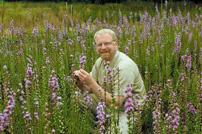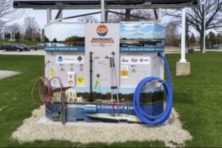Cleaning the Uncleanable
- Share
- Tweet
- Pin
- Share
Wisconsin Governor Jim Doyle recently announced state financial support for two farm-animal waste digesters to be located in northern Dane County. The concept of manure digesters was proposed by Dane County Executive, Kathy Falk, supported by the governor, and will be a major contributor in improving the water quality along with creating a new source of energy. The proposed state budget includes $6.6 million allocated to help fund the project.
In a county where lakes are extremely valuable community assets, these manure digesters are vital to remove the most obvious threat of excessive nutrients in the lake waters, runoff from farm fields where winter spread manure is not unusual. Digesters that turn cow manure into energy and remove the phosphorus from the waste stream will help protect the area lakes and turn a pollution problem into an energy and money making solution. Cleaner water supports higher waterfront property values, improved opportunities for fishing and recreation and an all around benefit for the environment.
These two anaerobic (without supplementary oxygen) manure digesters will provide major positive impacts for the people of Dane County because they help protect clean water and fish by removing phosphorus, the major pollutant responsible for algae growth and cladophora They also will produce clean, renewable on-farm energy and provide fertilizer and bedding for the farmers. The digesters would also remove the threat to local groundwater from the contamination by animal waste in the annual spring thaw, and the resultant run-off that occurs.
Some other benefits from these two planned digesters would be the elimination of 8,000 – 20,000 pounds of phosphorus per year per digester, they would also reduce 12,000 tons of greenhouse gases each year per digester, generate $900,000 in annual revenue from renewable energy and create new jobs. These two facilities would operate on a community basis to utilize the animal waste from several close-by operating dairy and livestock farms, solving several waste disposal problems for the betterment of the entire local community.


